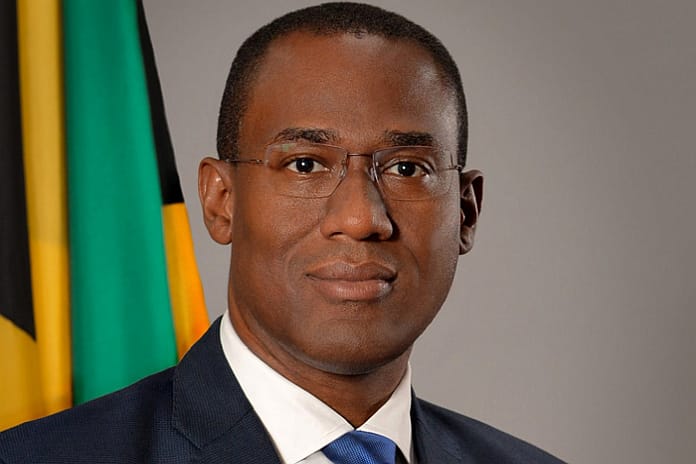Jamaican business leaders optimistic of fiscal year 2024/2025 - Caribbean News Global

Source: Caribbean News Global
KINGSTON, JAMAICA, (JIS) - Several business leaders are expressing optimism about the economy, based on macroeconomic outturns, and the prospects for the calendar year and 2024/25 fiscal period.
Notable among the outturns is a reduction in the debt-to-gross domestic product (GDP) ratio, which minister of finance and the public service, Dr Nigel Clarke, has indicated is on track to fall to 72 percent by the end of fiscal year 2023/24, the lowest in 30 years, and fall as low as 64 percent by the end of April 2025.
Other key outturns include a record low 4.2 percent unemployment rate; an increase in the number of employed Jamaicans by 85,600 to 1,320,400; record Net International Reserves (NIR) totalling more than US$4 billion; growth of 4.2 percent and 2.3 percent between January and March and April and June 2023, respectively, and an inflation rate deemed lower than several the island's trading partners.
Noting that the country is performing "exceptionally well", Private Sector Organisation of Jamaica (PSOJ) president, Metry Seaga, tells JIS News that Jamaica "has proven to be one of the shining stars internationally [in terms] of all the indicators that we judge", adding that "all of these [outturns] are pointing us in the right direction."
He says that the sole area of concern relates to Jamaica's ability to generate higher levels of sustainable inclusive growth and posits, "It's simply [that] we have to make our economy bigger and we have to grow our economy. That, we feel, is going to be done through [increased] exports and getting bigger markets involved in using our products and our services, because we cannot continue to try to sell the products that we manufacture or the services that we deliver to three million... people [living in Jamaica alone."
Meanwhile, Seaga describes the 2024/25 budget as "responsible and comprehensive."
"It was well thought out. The government has given [benefits] to the sections of society that need it the most... and, most of all, there are no new taxes, which is something that helps everybody. So, I am very, very happy with the budget," adds is "extremely bullish" in his outlook for the economy.
"I think that Jamaica is at the very beginning of where we can be. I think that people who see Jamaica now, who haven't been here for five... 10 years... are not recognising it with the amount of high-rise buildings that we have and the amount of infrastructure development that has gone on through the private sector. So, I think we have so far to go... [but] we are going to get there as long as we stay on the right trajectory," Seaga states, adding that he is "very happy to see that the government is maintaining its fiscal responsibility."
Jamaica Manufacturers and Exporters Association (JMEA) president, Sydney Thwaites, describes the economic performance as "positive."
"We are seeing a reduction in our debt to GDP [ratio] and we're seeing our NIR in a healthy position. We're seeing those overall things that point to a solid fiscal policy. So, overall, from the business perspective, the long-term indicators are moving in the right direction, and if we continue along these lines, I think [the outcomes] will be positive," Thwaites tells JIS News, cites extensive investments in capacity expansion, automation and local and regional acquisitions, primarily by large companies, as a signal of the positive stakeholder outlook.
Thwaites, however, expresses concern about the prospects of small and medium-sized companies being able to access affordable capital that enables them to undertake similar recalibration of their operations, particularly if inflation remains above the Bank of Jamaica's (BOJ) four to six percent target band.
Thwaites notes that access to capital is key in enabling the necessary level of investments to increase business productivity. Regarding the budget, Thwaites says most JMEA members and stakeholders deem it "sober" and "responsible", citing among the standouts the increase in the income tax threshold from $1.5 million to $1.7 million.
The JMEA president says among the areas that need to be prioritised "to really move the needle on our economy," is reducing Jamaica's trade deficit. "I think there have to be some targeted ways to support manufacturers in seeking new export markets and the cost that come along with those efforts. I think that there could be some tax credits and these types of things."
As it relates to his outlook for the upcoming calendar and fiscal years, Thwaites cites the expansions, investments and acquisitions by Jamaica's larger manufacturers, locally and regionally as being "very positive". Additionally, I think we're seeing the return of consistency of our tourism sector, which will certainly be a feeder for our smaller companies [and] create an ecosystem that we [will] work hard to make sure our smaller companies are taking part in," Thwaites continues. "So [the outlook is] generally positive with some challenges ahead... the largest of which is that the capital markets... are likely going to be tight and continue to be expensive."
Small Business Association of Jamaica (SBAJ) president, Michael Leckie, for his part, says the increased number of new business is indicative that the economy "is moving in the right direction."
"For the past year, we have noticed that a number of businesses have been started. When we contacted the Companies Office of Jamaica (COJ), we saw where there has been an increase, especially since [the] COVID-19 pandemic," Leckie tells JIS News.
Based on the outturns, particularly related to growth and employment: "I would give Jamaica's economy a positive rating", adding that he is optimistic about the country's economic prospects over the near to medium term.



